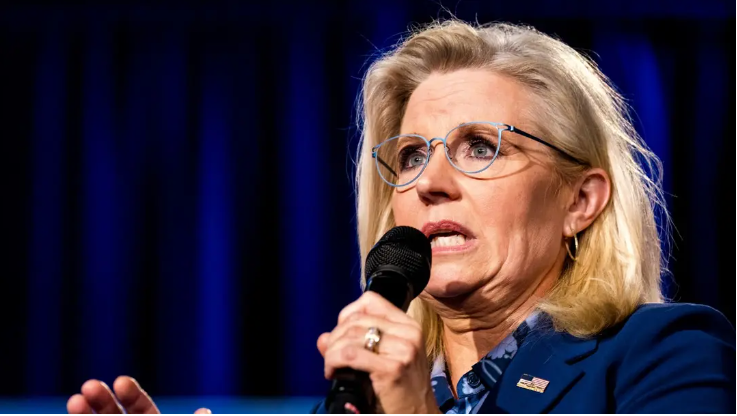UK Elections: Environment
Overview: In 2022, the UK produced 319M tonnes of CO2 emissions, roughly 0.9% of global output. The Climate Change Act 2008 requires emission levels to be reduced by 80% by 2050, and the UK is a signatory of the 2015 Paris Agreement aiming to hold average global temperatures to 1.5°C above pre-i...
Facts
- Overview: In 2022, the UK produced 319M tonnes of CO2 emissions, roughly 0.9% of global output. The Climate Change Act 2008 requires emission levels to be reduced by 80% by 2050, and the UK is a signatory of the 2015 Paris Agreement aiming to hold average global temperatures to 1.5°C above pre-industrial levels. In June 2019, the UK committed to reducing public sector building greenhouse gas emissions by 75% by 2037 and becoming net zero by 2050.1
- Overview: In 2022, the UK produced 319M tonnes of CO2 emissions, roughly 0.9% of global output. The Climate Change Act 2008 requires emission levels to be reduced by 80% by 2050, and the UK is a signatory of the 2015 Paris Agreement aiming to hold average global temperatures to 1.5°C above pre-industrial levels. In June 2019, the UK committed to reducing public sector building greenhouse gas emissions by 75% by 2037 and becoming net zero by 2050.2
- Overview: In 2022, the UK produced 319M tonnes of CO2 emissions, roughly 0.9% of global output. The Climate Change Act 2008 requires emission levels to be reduced by 80% by 2050, and the UK is a signatory of the 2015 Paris Agreement aiming to hold average global temperatures to 1.5°C above pre-industrial levels. In June 2019, the UK committed to reducing public sector building greenhouse gas emissions by 75% by 2037 and becoming net zero by 2050.3
- Overview: In 2022, the UK produced 319M tonnes of CO2 emissions, roughly 0.9% of global output. The Climate Change Act 2008 requires emission levels to be reduced by 80% by 2050, and the UK is a signatory of the 2015 Paris Agreement aiming to hold average global temperatures to 1.5°C above pre-industrial levels. In June 2019, the UK committed to reducing public sector building greenhouse gas emissions by 75% by 2037 and becoming net zero by 2050.4
- Current state: The Department for Energy Security and Net Zero estimates that UK territorial greenhouse gas emissions were reduced by 53% excluding and 50% including aviation and shipping between 1990 and 2023. However, according to a 2023 bipartisan research briefing by the House of Commons, while mitigation has 'historically been the focus of much action, adaption is increasingly recognized as necessary to manage climate change.' The Met Office projects that by the 2070s, hot summer days will become 3.8-6.8°C warmer, while heavy rainfall, surface water flooding, and thunderstorms will become more frequent and intense.5
- Environment as an election issue: According to YouGov, as of June 24, 20% of UK adults see the environment as one of the most important issues facing the country. In comparison, May's Ipsos Issues Index found pollution/environment/climate change to be an important issue to 10% of UK adults. This figure remains the same amongst Conservative supporters, and increases to 12% amongst Labour supporters.6
- Environment as an election issue: According to YouGov, as of June 24, 20% of UK adults see the environment as one of the most important issues facing the country. In comparison, May's Ipsos Issues Index found pollution/environment/climate change to be an important issue to 10% of UK adults. This figure remains the same amongst Conservative supporters, and increases to 12% amongst Labour supporters.7
- Conservative pledges: Rishi Sunak announced in September 2023 that the Conservatives would adopt a “pragmatic, proportionate, and realistic approach” to meeting net zero, while “reducing costs on British families.” This included postponing a ban on the sale of new petrol and diesel cars from 2030 to 2035, exemptions to fossil fuel boiler phaseouts, and an increase in the Boiler Upgrade Grant by 50%. The party reaffirmed this in their manifesto, committing to no new green levies or charges. They've pledged to treble offshore wind capacity, build two carbon capture and storage clusters, and continue current energy price caps and windfall taxes. They've also committed to passing the Offshore Petroleum Licensing Bill through Parliament — mandating annual licensing rounds for oil and gas companies in the North Sea.8
- Conservative pledges: Rishi Sunak announced in September 2023 that the Conservatives would adopt a “pragmatic, proportionate, and realistic approach” to meeting net zero, while “reducing costs on British families.” This included postponing a ban on the sale of new petrol and diesel cars from 2030 to 2035, exemptions to fossil fuel boiler phaseouts, and an increase in the Boiler Upgrade Grant by 50%. The party reaffirmed this in their manifesto, committing to no new green levies or charges. They've pledged to treble offshore wind capacity, build two carbon capture and storage clusters, and continue current energy price caps and windfall taxes. They've also committed to passing the Offshore Petroleum Licensing Bill through Parliament — mandating annual licensing rounds for oil and gas companies in the North Sea.9
- Conservative pledges: Rishi Sunak announced in September 2023 that the Conservatives would adopt a “pragmatic, proportionate, and realistic approach” to meeting net zero, while “reducing costs on British families.” This included postponing a ban on the sale of new petrol and diesel cars from 2030 to 2035, exemptions to fossil fuel boiler phaseouts, and an increase in the Boiler Upgrade Grant by 50%. The party reaffirmed this in their manifesto, committing to no new green levies or charges. They've pledged to treble offshore wind capacity, build two carbon capture and storage clusters, and continue current energy price caps and windfall taxes. They've also committed to passing the Offshore Petroleum Licensing Bill through Parliament — mandating annual licensing rounds for oil and gas companies in the North Sea.10
- Labour pledges: Labour have pledged to establish publicly owned Great British Energy headquartered in Scotland, creating 650K jobs. This is part of their “Green Prosperity Plan,” which also includes increasing the Energy Profits Levy by three percentage points, and the creation of a National Wealth Fund. As part of a commitment to zero-carbon clean energy, they've also pledged to double onshore wind, triple solar power, and quadruple offshore wind, alongside investments in carbon capture, hydrogen and marine energy, and long-term energy storage. They will also fine water companies that harm the environment and ban fracking, while halting new licences for coal as well as for oil and gas companies in the North Sea.11
- Reform UK pledges: Reform claims that within their first 100 days of government they will scrap net zero and all related subsidies, while fast-tracking licenses for North Sea gas and oil and granting shale gas licenses on test sites for two years. Nuclear energy with small modular reactors will also be fast-tracked, while incentives will be created for lithium mining, Combined Cycle gas turbines, clean synthetic fuel, and clean coal mining. Reform claims that their energy pledges will save the UK approximately £30B ($38B) a year.12
- Liberal democrats pledges: The Lib Dems pledge to 'accelerate' the transition to a 'more circular economy' by reducing resource use, waste, and pollution, and promoting 'recovery, reuse, recycling, and remanufacturing.' They will invest in zero-carbon and environmental technologies, aiming to boost R&D to 3% of GDP by 2030 and 3.5% by 2034. The UK will 'at least' match EU environmental standards and target net zero by 2045. They aim for 90% of UK electricity to come from renewables by 2030 and will introduce a windfall tax on oil and gas companies. Additionally, a new Energy-Saving Homes Scheme will be created, and an emergency Home Energy Upgrade program will provide free insulation and heat pumps to low-income households.13
Sources: 1gov.uk (a), 2Our World in Data, 3Unfccc, 4GOV.UK, 5researchbriefings.files.parliament.uk, 6ipsos.com, 7yougov.co.uk, 8gov.uk (b), 9public.conservatives.com, 10Parliament, 11labour.org.uk, 12assets.nationbuilder.com and 13Libdems.
Narratives
- Tory narrative, as provided by Express.co.uk. Sunak’s decision to scale back a host of ridiculous net zero policies is to be commended. While sticking to the UK’s legally-binding 2050 target, the prime minister is ensuring that climate measures are not implemented at the expense of increased financial burdens for struggling families. Sunak’s proportionate approach to environmental policy is a stark contrast to Labour and Starmer’s heavy-handed approach.
- Labour narrative, as provided by LabourList. Sadiq Khan's third successive victory in London is a fine example of Labour success built upon the foundations of a strong environmental focus, and this must be replicated on a national level. Starmer must be optimistic in his climate commitments in order to secure the support of the moderate and progressive voters who have been consistently ignored by the Tories for years.
- Establishment-critical narrative, as provided by GB News. Government net zero policies and targets are a profound example of utopian state overreach. Both Conservative and Labour green plans are outrageously expensive and overly idealistic, while the financial pressures of these plans will come at a severe cost to the British public. Cheap energy is within the UK’s reach, but first the country must allow consumers and the markets to make their own choices instead of forcing a fanatical environmental agenda.
- Progressive narrative, as provided by Guardian. The UK is but one example within a scary trend of Western countries sacrificing the Earth’s future through rightwing populist policies. The current Conservative Party has ripped up the UK’s previously bipartisan environmental consensus in a desperate bid to save themselves from humiliation at the next general election. By continuing to kick the can down the road, the Tories are placing future generations in extreme danger.







